Natural Theology and Beyond (I.D. VII)
So, herein I post what are basically glorified notes to myself. My hope is to etch in my memory some of what constitute the basic anchor points of Dembski's sweeping, subtle, and nuanced argument thus far.
One anchor point is clearly the idea that modern science is (erroneously) wedded to "methodological naturalism" (see pp. 67-69). Methodological naturalism is, says Dembski, the view that nature ought to be treated as a closed causal system. As an axiomatic "inviolability thesis," it vouchsafes the intelligibility of the world.
Put another way, if science is to come up with a grand "theory of everything," then such things as miracles must be ruled right out of court — since a world which operates at the whim of a divine intercessor is perforce unintelligible.
Methodological naturalism is, says Dembski, a "regulative principle" for how science is to be done today, where for Spinoza and Schleiermacher this view of nature as a closed causal system was a claim about the very nature of nature. In other words, the naturalism of Spinoza and Schleiermacher was metaphysical, not just methodological.
The metaphysical naturalism of Spinoza and Schleiermacher, Dembski shows, was an elaborate case of question begging: their naturalistic assumptions against the possibility of miracles are said by Spinoza and Schleiermacher to be absolutely necessary truths. Why? Because of these philosophers' own closed-system-of-nature metaphysical presumptions. The argument is circular.
But God could in fact have ordained other than a closed natural system. Accordingly (says Dembski) metaphysical naturalism fails.
Still and all, in its heyday metaphysical naturalism served as a scaffolding for the follow-on arch of methodological naturalism, which as a "regulative principle" became normative for modern science.
A second Dembskiyan anchor point: as such, methodological naturalism not only lets out miracles per se, but also cashiers "a designing intelligence whose action transcends natural laws ... simply by being irreducible to natural laws" (p. 69).
Dembski spends much time considering the status of natural laws. For instance, he says:
... my own metaphysical preference is to view creation as an interrelated set of entities, each endowed by God with certain inherent capacities to interact with other entities. In some cases these inherent capacities can be described by natural laws. Nevertheless, no logical necessity attaches to these laws, nor for that matter to the inherent capacities. (p. 66, italics mine)
God can override the laws and/or rescind the capacities, in Dembski's view. For example, Dembski says, God resurrected Jesus's dead body by miraculously endowing it with new capacities.
As for overriding natural laws, possibly what Dembski has in mind is a suspension of them in certain instances. Or, possibly — and this is what I think Dembski is really vectoring toward — natural laws, though important, are not the whole story. They don't by themselves explain everything. Instead, God fills in the blanks he intentionally left in the lawbooks so as to exert causal influences in situations which the laws alone do not cover.
It isn't really clear at this point whether Dembski is going to put great emphasis on the overriding of natural law as distinct from the rescinding of ordinary capacities — or if they are indeed separate concepts. Perhaps the one implies the other. But my guess is that the main emphasis will fall on the supposed "blanks left in the lawbooks" which allow God to take a hand in nature's unfolding.
 |
| Charles Darwin |
Anchor point number three for Dembski, in assailing such views, seems to be that "Natural laws produce their effects with an impersonal, automatic necessity" (p. 79). This is so, one of his endnotes says (endnote 16, p. 285), "even if we allow for a probabilistic component in the laws." Inviolable natural laws, probabilistic or not, may be "brute facts" that require no explanation:
... it is no longer clear what need there is for a designer since designers by definition design artifacts/contrivances, not abstracted lawlike regularities. A designer who is merely a law-giver always ends up being dispensable, for the laws of nature always have an integrity of their own and can thus just as well be treated as brute facts (as opposed to edicts of a clandestine law-giver). (p. 75)
 |
| Charles Babbage |
But it seems to me that a sequence of apparently random digits generated as the decimal expansion of π (3.14159....) constitutes a "thing" which in and of itself bears no ascertainable marks of design. Yet, once it is revealed how the digits were produced, we can be sure that the underlying expansion-of-π algorithm was designed. So I doubt that Dembski is correct in simply assuming that "if I can't ascertain that a thing is designed, I can't ascertain that the process ... is designed."
Furthermore, Dembski posits that putatively designed laws which may instead just be "brute facts" strip natural theology of empirical content. Such an approach to natural theology rules nothing in, he says, that couldn't be explained by simply asserting that natural laws are brute facts which are just there.
So it seems reasonably clear that Dembski intends to reformulate natural theology in terms of (a) natural law not being the whole story of causality in the world order and/or (b) there also having been special miraculous interventions on the part of God.
The fact that Dembski has served notice that (a) and (b) are separate categories suggests to me that he will put more emphasis on God's cunning complemetation of natural laws than on his working of specific absolute miracles.
All in all, though, I think it's a shame that Dembski establishes the need to look beyond Babbage's natural-law-based approach to natural theology by resorting to what I consider shaky arguments, such as his assertion that locating design in natural laws is more problematic than locating design in "things." In some cases, as with the decimal expansion of π, in fact it may be less problematic.
Let me close by noting that Stuart Kauffman, in At Home in the Universe, seems to take the position that natural laws — in view of the laws which he posits and sketches out of self-organized, emergent complexity that make intellgent beings like us "we the expected" — are enough to underwrite our "reinventing the sacred." This, I'd say, makes Kauffman the lineal intellectual heir of Babbage.
I can't tell if Kauffman actually believes in God, though even if he does, I suspect the concpicuously theistic Dembski would bridle at Kauffman's lawfulness-based worldview as in essence natural theology redux. "Natural laws, however, proved too thin a soup to support the activity of a designer," à la the hopes of Charles Babbage, says Dembski (p. 82). Kauffman's investigations into laws of self-organization and complexity could well be construed as thickener for the soup.
Dembski's agenda is different. He says, "Indeed it's only when natural laws are viewed as incomplete, so that without the activity of an intelligent agent it is not possible to bring about a given object of nature, that natural theology can remain a valid enterprise" (p. 79). Clearly, Dembski will later on be proposing what such "activity of an intelligent agent" truly consists of, and how we may assure ourselves that it has actually taken place.






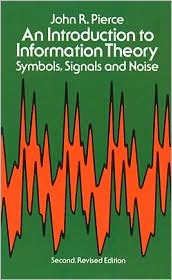

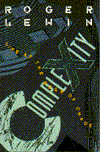
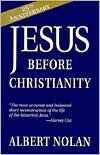
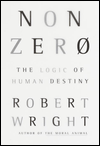

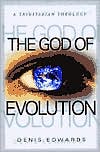

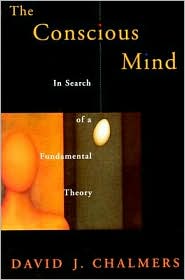
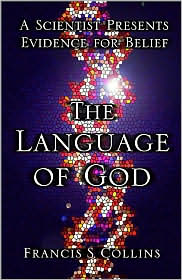


0 Comments:
Post a Comment
<< Home